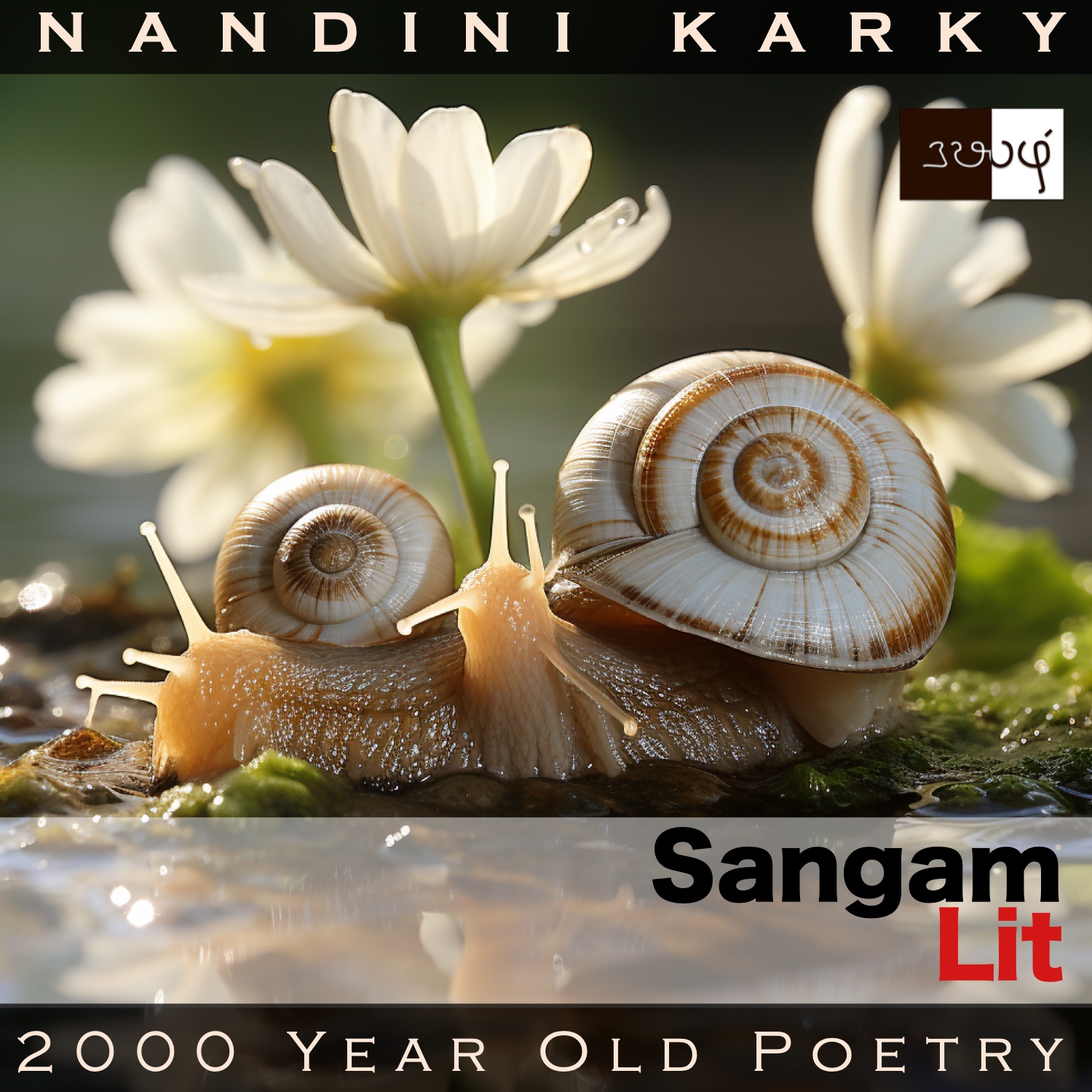Podcast: Play in new window | Download
Subscribe: Apple Podcasts | Spotify | Amazon Music | Android | iHeartRadio | Email | TuneIn | RSS | More
In this episode, we listen to the angst of a supplicant, as portrayed in Sangam Literary work, Puranaanooru 266, penned about the Chozha King Uruvappahrer Ilanchetchenni by the poet Perunkundroor Kizhaar. Set in the category of ‘Paadaan Thinai’ or ‘Praise’, the verse extols the wealth of a nation and seeks support to slay poverty.

பயம் கெழு மா மழை பெய்யாது மாறி,
கயம் களி முளியும் கோடைஆயினும்,
புழல்கால் ஆம்பல் அகல் அடை நீழல்,
கதிர்க் கோட்டு நந்தின் சுரி முக ஏற்றை
நாகு இள வளையொடு பகல் மணம் புகூஉம்
நீர் திகழ் கழனி நாடு கெழு பெரு விறல்!
வான் தோய் நீள் குடை, வய மான் சென்னி!
சான்றோர் இருந்த அவையத்து உற்றோன்,
‘ஆசு ஆகு’ என்னும் பூசல் போல,
வல்லே களைமதிஅத்தை உள்ளிய
விருந்து கண்டு ஒளிக்கும் திருந்தா வாழ்க்கை,
பொறிப் புணர் உடம்பில் தோன்றி என்
அறிவு கெட நின்ற நல்கூர்மையே!
We are back again in the zone of praising kings and seeking their aid. This Chozha king, whom we met in Puranaanooru 4, the father of the famous Sangam-age King Karikaalan, makes an appearance in this verse. The poet’s words can be translated as follows:
“Even when huge rain clouds that bring benefits many do not pour anymore and when the cool mud in the pond dries up in the months of summer, under the wide-spreading shade of the hollow-stalked water lily, a curved-faced male snail with feelers, akin to rays, mates during the day with a young female having a conch-like appearance in your water-flowing, field-filled country with much prosperity, O Chenni, who has a royal umbrella extending to the sky, and speedy horses! When a person in suffering reaches an assembly of the wise, and cries out aloud, ‘Render me help’, his distress is sure to be removed soon. Akin to that, slay my poverty that diminishes my sharpness and skill born in this body filled with the senses, and yet living a terrible life, which makes me hide when seeing guests approach my abode!”
Time to delve into the details. The poet starts by talking about the harshness of the summer season, when it’s no more the time for clouds to pour and as a consequence of all that dryness, the pond mud has become brittle and barren. Even in such a harsh time, in this king’s land, there’s so much water and fertility that snails are mating in the shade of the waterlily plant, the poet remarks. Intricate details such as equating the snail’s feelers to the sun’s rays and calling a female snail as a conch shell stand testimony to the poet’s imagination and creativity. Next, the poet talks about how a person’s suffering is sure to end when he approaches a court of the wise. And likewise, the poet concludes by pleading to the king to remove his own poverty, which masks his sharpness and senses and makes him hide away when guests near his home, for he has nothing to give them.
From this cry for help, we can understand that hospitality was foremost in the minds of Sangam people and they just couldn’t bear to be someone who would refuse to welcome those who came to their homes. The unique way of referring to the prosperity of a nation not by the mounds of gold or silver it has accumulated but by being a place where water is plentiful even in the harshest of summers throws light on the importance accorded to this element by Sangam people. A verse that proclaims in the words of our ancestors that our true wealth lies not in complicated economic factors but in protecting these life-giving resources on our good earth!




Share your thoughts...